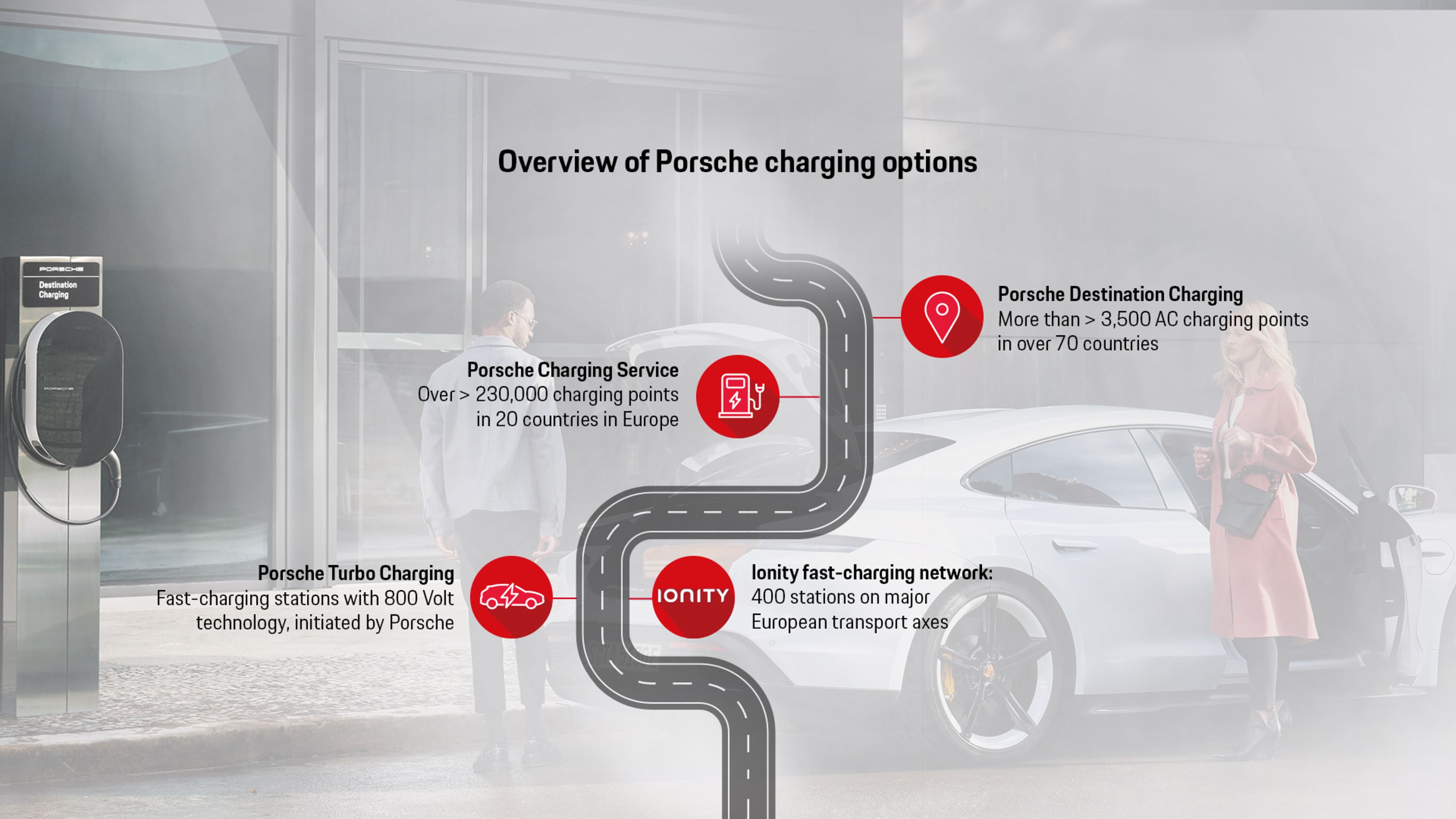Always stay mobile
Flexible and easy charging at public charging stations.
Flexible and easy charging at public charging stations.
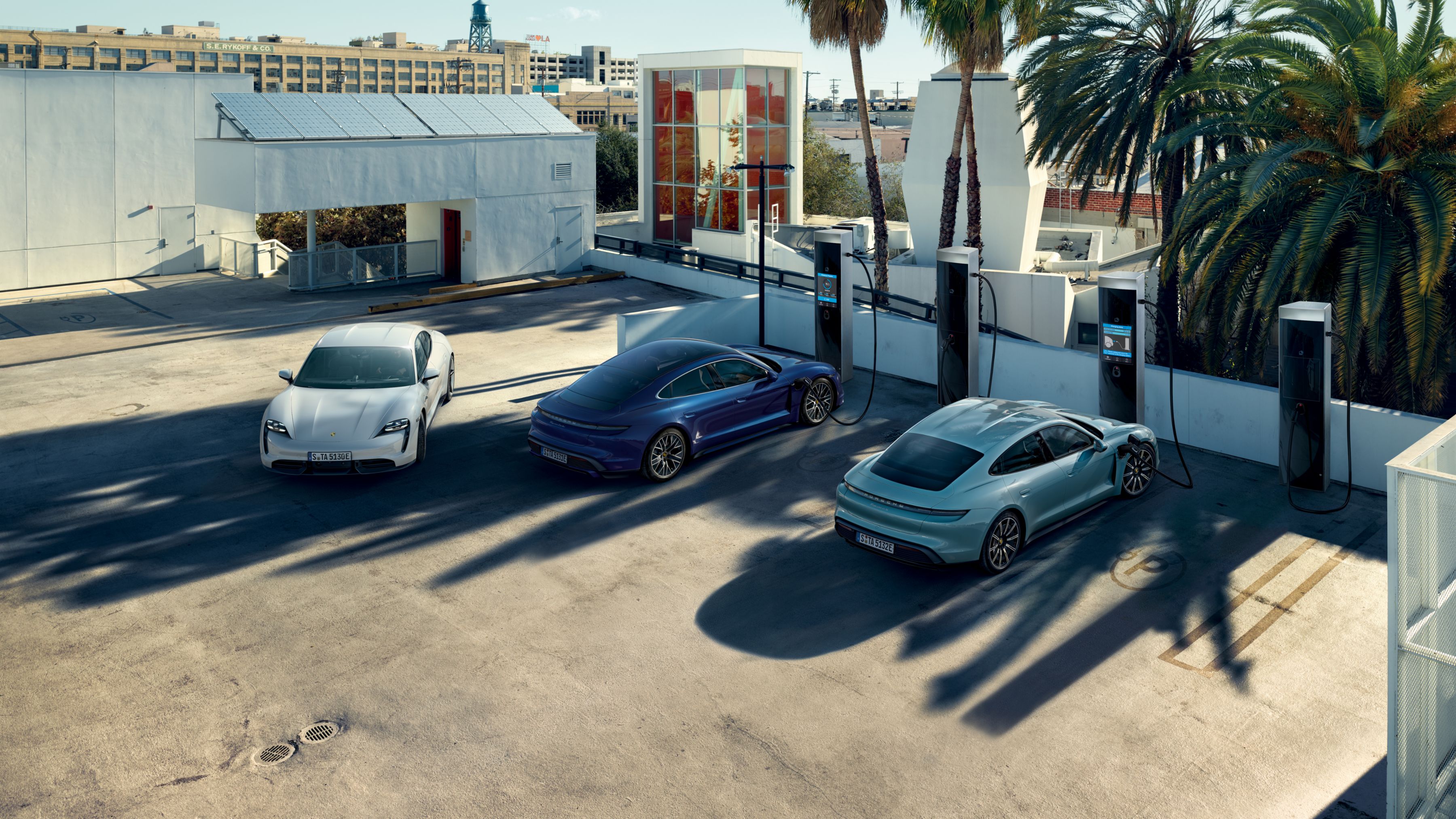
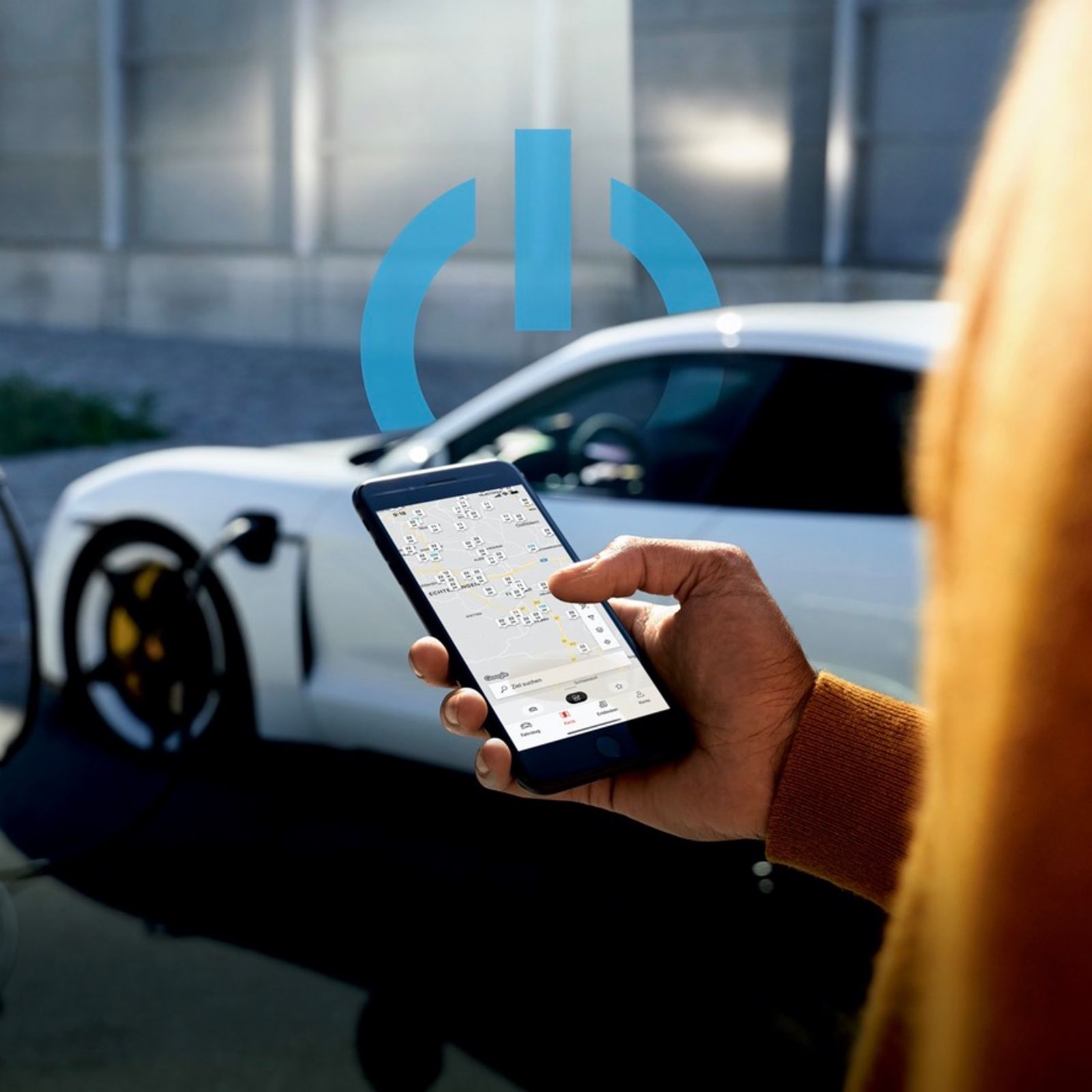
For charging on the road, the Porsche Charging Service provides worldwide access to charging points from various providers. Central billing takes place via Porsche. There are currently more than 65,000 charging points available in Germany, Austria and Switzerland, while in Europe overall there are more than 230,000 charging points connected in 20 countries. These include around 20,000 charging points with more than 50 kW DC charging capacity, and more than 8,500 that offer 150 kW or more.
Porsche drivers can look for available charging points using the ‘Green Power’ charging point filter. Only charging stations that use appropriately certified electricity directly for charging are then displayed.
A particular highlight is the exclusive Porsche Destination Charging. It allows BEV and PHEV customers to charge their Porsche for free at top destinations. The programme now provides more than 3,500 AC charging points in over 70 countries, including at selected hotels, airports, museums, shopping malls, sports clubs and marinas. Further expansion of the network is in full swing. Porsche Destination Charging locations are marked with a separate icon (a black P) on the map in the My Porsche App so that they can quickly be found and navigated to. In addition, they can be found on the Charge Map at porsche.com (filter function ‘Destination Charging’).
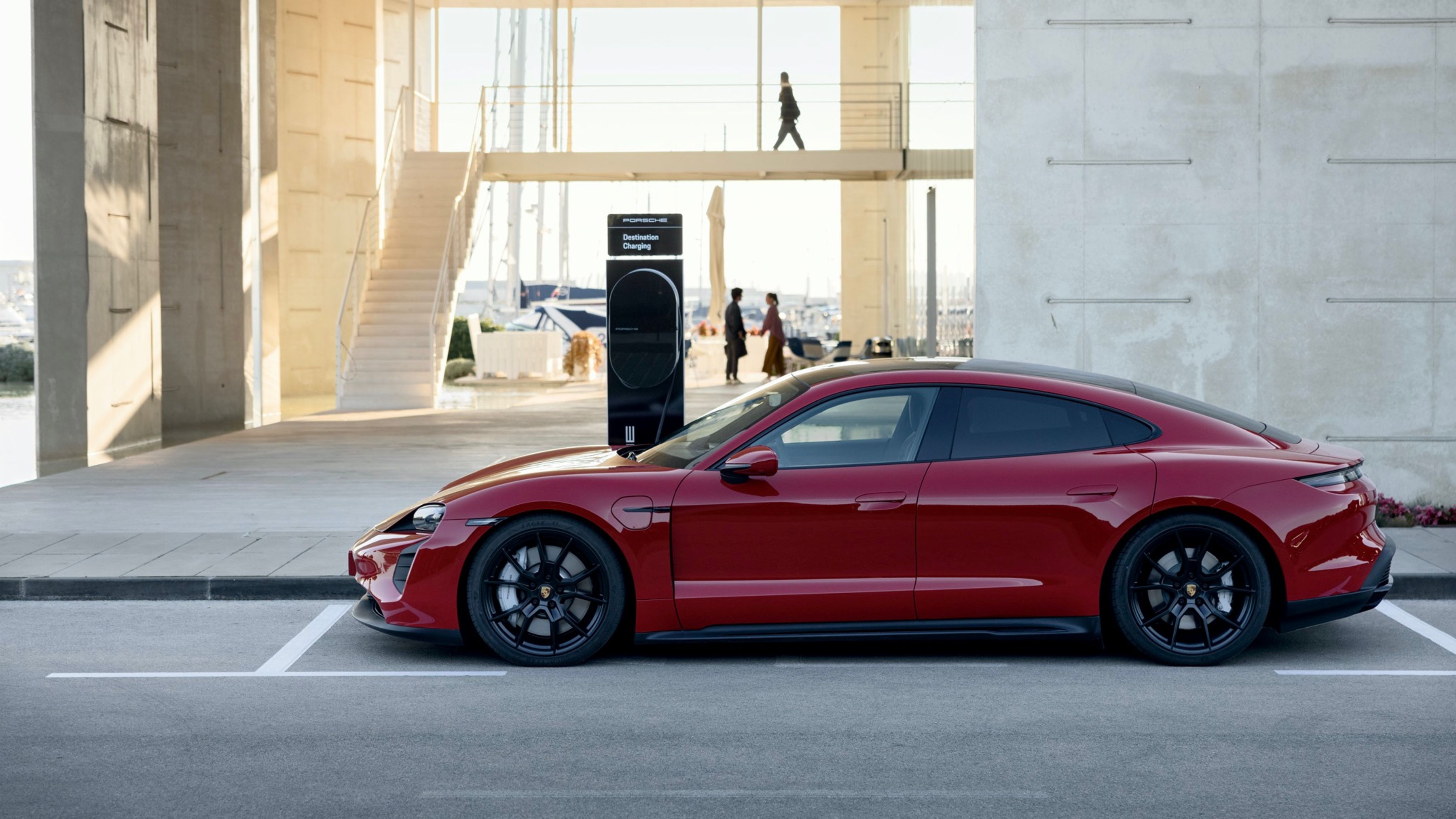
Porsche Turbo Charging is a network of fast-charging stations with 800-volt technology initiated by Porsche. In addition to installations at Porsche Centres, it also includes the charging park that Porsche maintains at its production site in Leipzig. At the customer centre near the city, 12 fast charging points with 350 kW (DC) and four charging points with 22 kW (AC) are in operation – seven days a week, around the clock and for customers of all vehicle brands.
In addition, Porsche is supporting the worldwide establishment of a fast-charging infrastructure, in some cases together with partners:
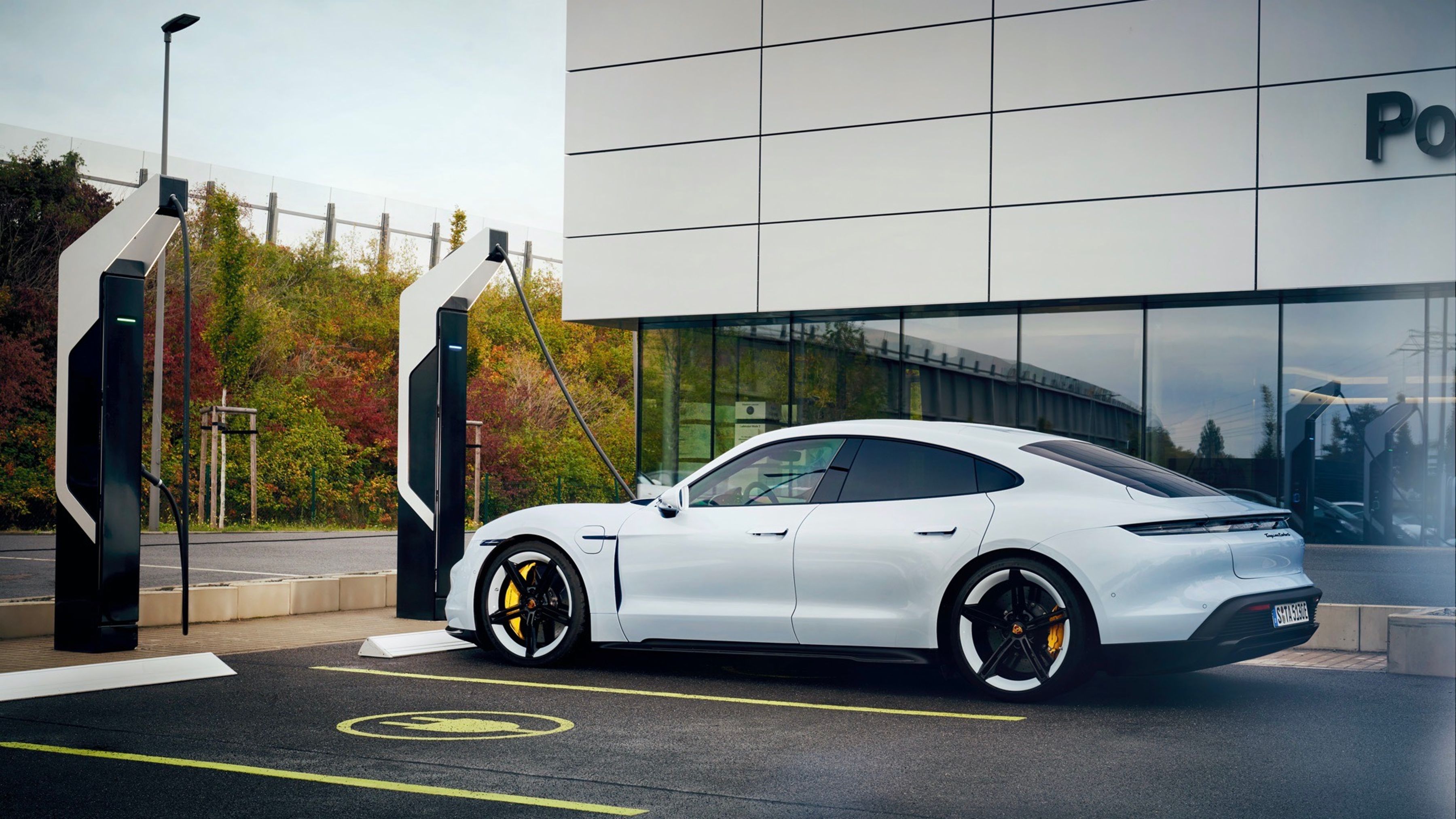
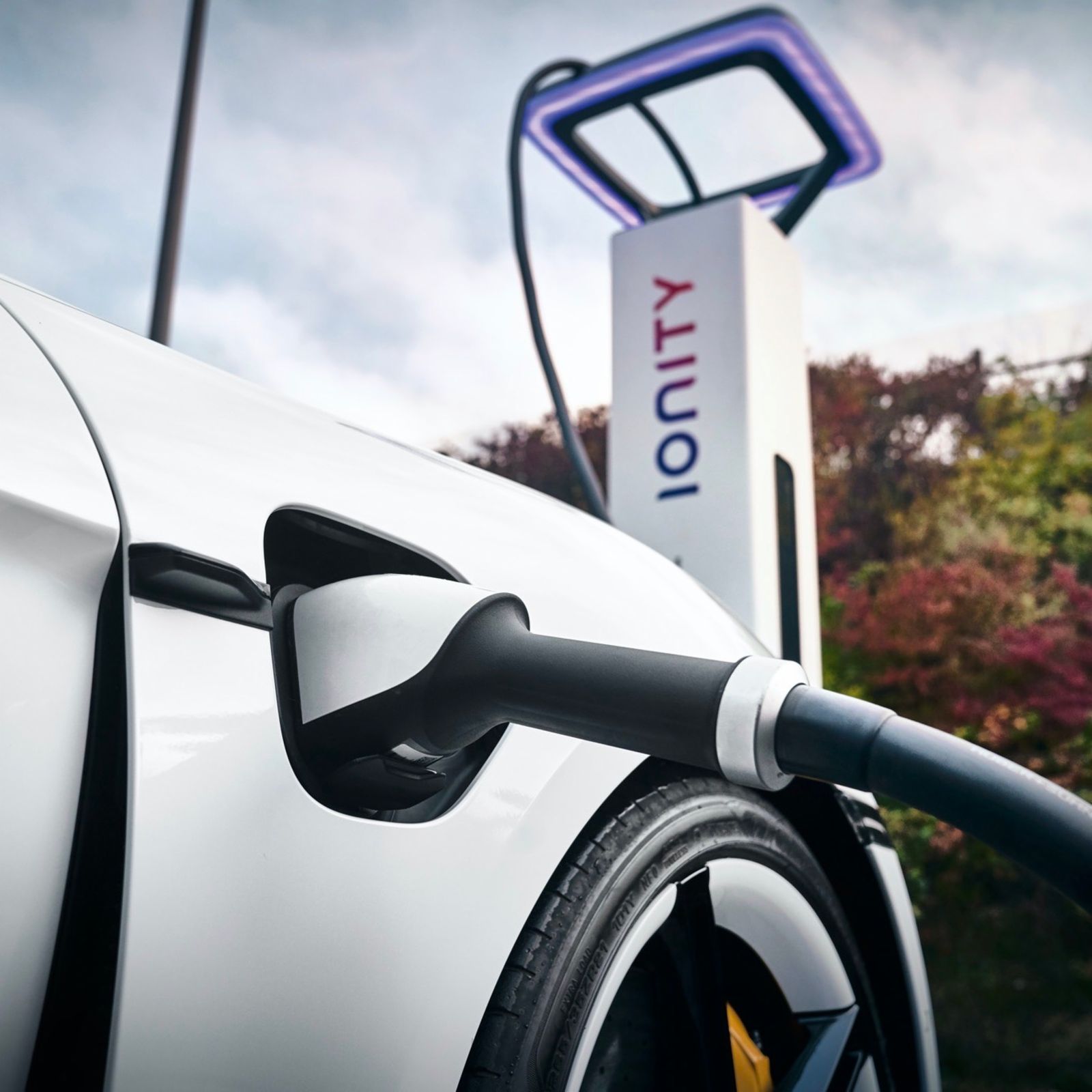
IONITY already has the largest network of high-power charging stations in Europe that is accessible for most electric vehicles. Now, the joint venture is ramping up its plans for further expansion. By 2025, the number of charging sites is expected to rise from the current 400 to more than 1,000. There will be around 7,000 charging points – almost five times as many as there are currently (approximately 1,500).
The IONITY network uses the Combined Charging System (CCS), the European charging standard. The 800-volt technology of the charging stations means that the network can be used to charge the Porsche Taycan at its full potential of up to 270 kW. By using the Porsche Charging Service, Taycan drivers also benefit from a standardised and significantly discounted price at IONITY fast-charging stations; currently 0.33 euros per kilowatt hour.
“Automotive change requires both individual pioneering spirit and collective strength. As electrification increases in the industry, we need to ensure that the infrastructure meets the growing demand. We expect that more than 80 per cent of all new Porsche models will be hybrid or fully electric in 2030,” says Oliver Blume, Chairman of the Executive Board at Porsche AG. “Since its foundation in 2017, the entire industry has been working with IONITY and with the new Strategy 2.0, we will continue to drive forward the development of the joint venture. IONITY members are investing 700 million euros over the next four years, underlining their commitment to electromobility.”
IONITY charging points will be built not only on European motorways, but also near major cities and along busy main roads. In addition, the number of charging points at the existing stations will be gradually increased: from the current four to six charging points to between eight and 12 per station.
As part of the Oasis flagship concept, IONITY aims to significantly increase convenience and service. Therefore the company intends to increasingly acquire land to set up charging parks with their own catering services and connected shops.
IONITY’s shareholders include BMW Group, Mercedes Benz AG, Ford Motor Company, Hyundai Motors with KIA, Volkswagen Group with Audi and Porsche, and soon the investment company Blackrock.*
*Investment in the joint venture is subject to approval by the relevant authorities.
